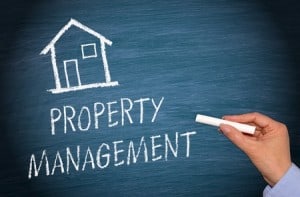How To Outsource As An Independent Or Long-Distance Landlord
Keeping your physical, financial and mental well-being in check as a landlord should be a priority. This might mean outsourcing different tasks. While outsourcing can mean many things such as hiring a maintenance person or an accountant, it can also mean implementing online tools for a faster and more efficient landlording process. Additionally, if you do not live near your property, online tools and potentially other people will become necessary when managing your property. Below are some guidelines for outsourcing for both independent and long-distance landlords.

A lot of landlords try to do as much of the hands-on property management as possible, but this isn’t necessarily the most efficient or cost-effective approach. Here are some areas you could consider outsourcing to save time, money and the hassle:
• Online rental process: One of the longest and most time-consuming parts of property management is finding tenants. Not just because my company is one provider of this solution, I believe the best way to streamline this process is to do it all online. Tenants can fill in online rental applications, go through a screening process, pay application fees and sign the lease all online. With instant communication and background checks, landlords can save copious amounts of time that would’ve been spent faxing, scanning and waiting for applications to be dropped off. Most platforms are mobile-friendly as well, so you can work from anywhere.
• Marketing: A good mix of online and offline marketing tools will help you rent your house faster. Look for services that will syndicate your listing for you. That way, you list it once, and then it is automatically gets pushed out to all of the popular listing sites. Don’t forget about social media as well. Post your listing on local Facebook Marketplaces as well as Craigslist. “For Rent” signs will help promote your property to drive-by and pedestrian traffic. Push them to your online listing for more information.
• Maintenance: While we all wish we could be the best DIY person around, attempting to fix vital issues in or around your property without professionals might not be the best idea. There are some basic house tasks you can do yourself, but there are some you shouldn’t. For example, if the plumbing isn’t working in your property and the only thing you’ve done is watch a YouTube video, stop before you start. You could cause more damage that would actually cost more to fix than simply hiring a plumber from the get-go.
• Accounting: Keeping track of finances and completing your taxes at the end of the year can get complicated real fast for landlords. There are a variety of tax deductions landlords are eligible for, and you want to make sure you’re not missing out on them. Consider hiring an accountant to go over the numbers with you to ensure you’re getting the most out of your investment. A professional accountant will probably be able to save you more money in the long run so you don’t owe more come April 15th.
Outsourcing For Long-Distance Landlords
Sometimes landlords choose to invest in popular, rent-heavy areas such as college towns or vacation destinations, or they have to relocate for work and choose to rent rather than sell their home. Whatever circumstances take you away from your rental, the following is necessary for a long-distance landlord.
• Property Management: Depending on how far away you are from your property, you might want to consider hiring a property manager to take care of your rental. This would be someone who could be the go-to for tenants to communicate with if there are problems or emergencies at the property.
• Screening: Since there is a potential you won’t get to meet your tenants before they move in, tenant screening is extremely important. You want to ensure the tenants who have applied will respect your property and be trustworthy individuals. Instead of having to go meet them in person, opt for screening first, and then if you’d like, you can even video chat or talk to them on the phone to get to know them better. Either way, you will save time during the process and in the future if you thoroughly screen your potential renters.
• Personally check up on tenants: While you can’t be there face to face, it is still courteous to reach out to your tenants over email or phone to make sure everything is going all right at the property. Even though you might have a property manager, it is important to establish good communication so your tenants treat your property respectfully and feel comfortable talking to you.
• A strict lease: Making sure you have a proper lease that has been signed by both parties, most likely electronically, that gives clear specifications on who is in charge of certain damages, rent due dates and any other rules will save you time and money in the future. Sometimes long-distance landlords need to provide more detailed leases since they won’t be there in person to go over minor things. When in doubt, put it in the lease.
Overall, saving time and money as an independent landlord and as a long-distance landlord is a very important goal. Outsourcing as much as you can to enable a bigger return on investment from your rental will benefit you greatly — and you’ll thank yourself later.
Source: forbes.com















 Accessibility
Accessibility